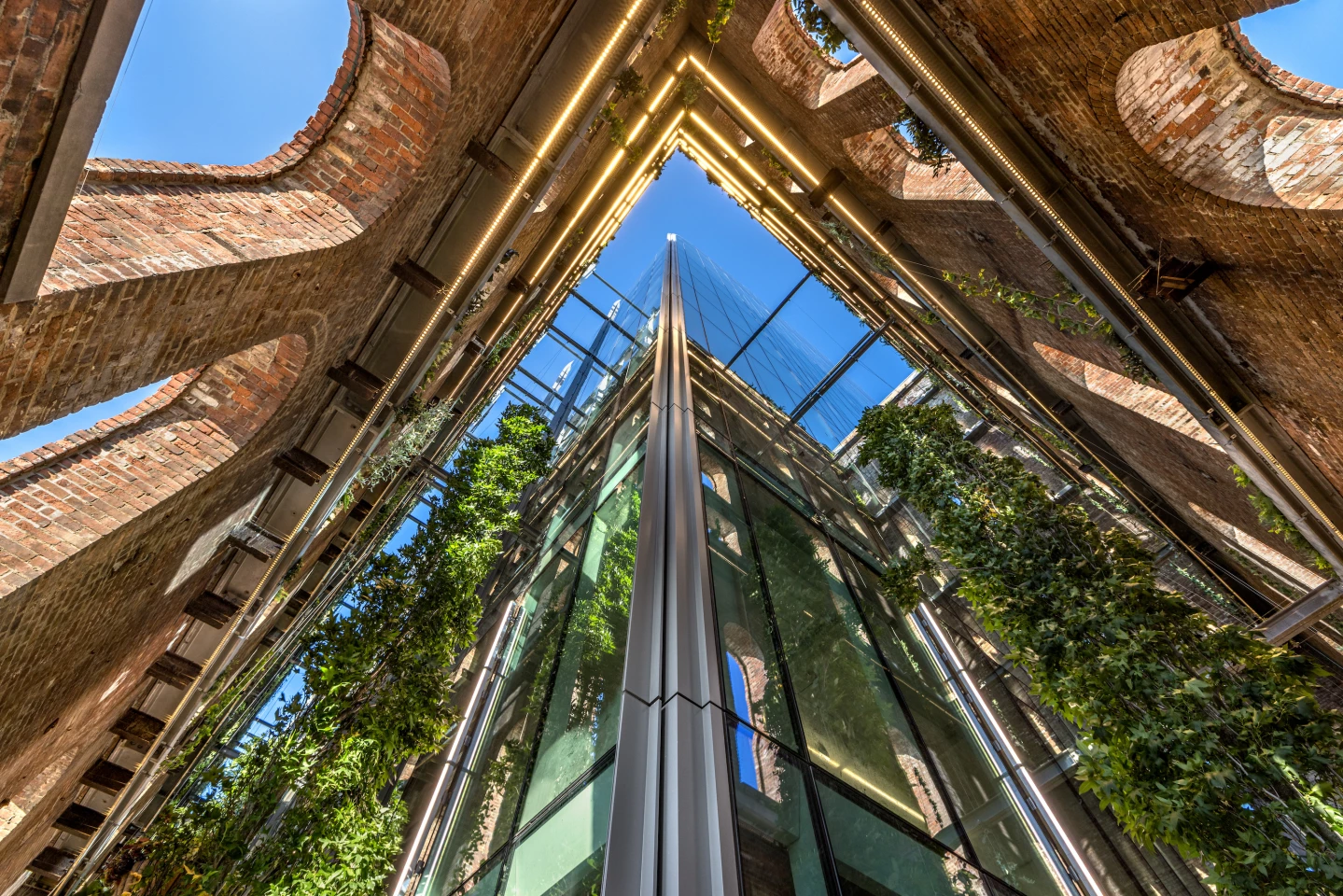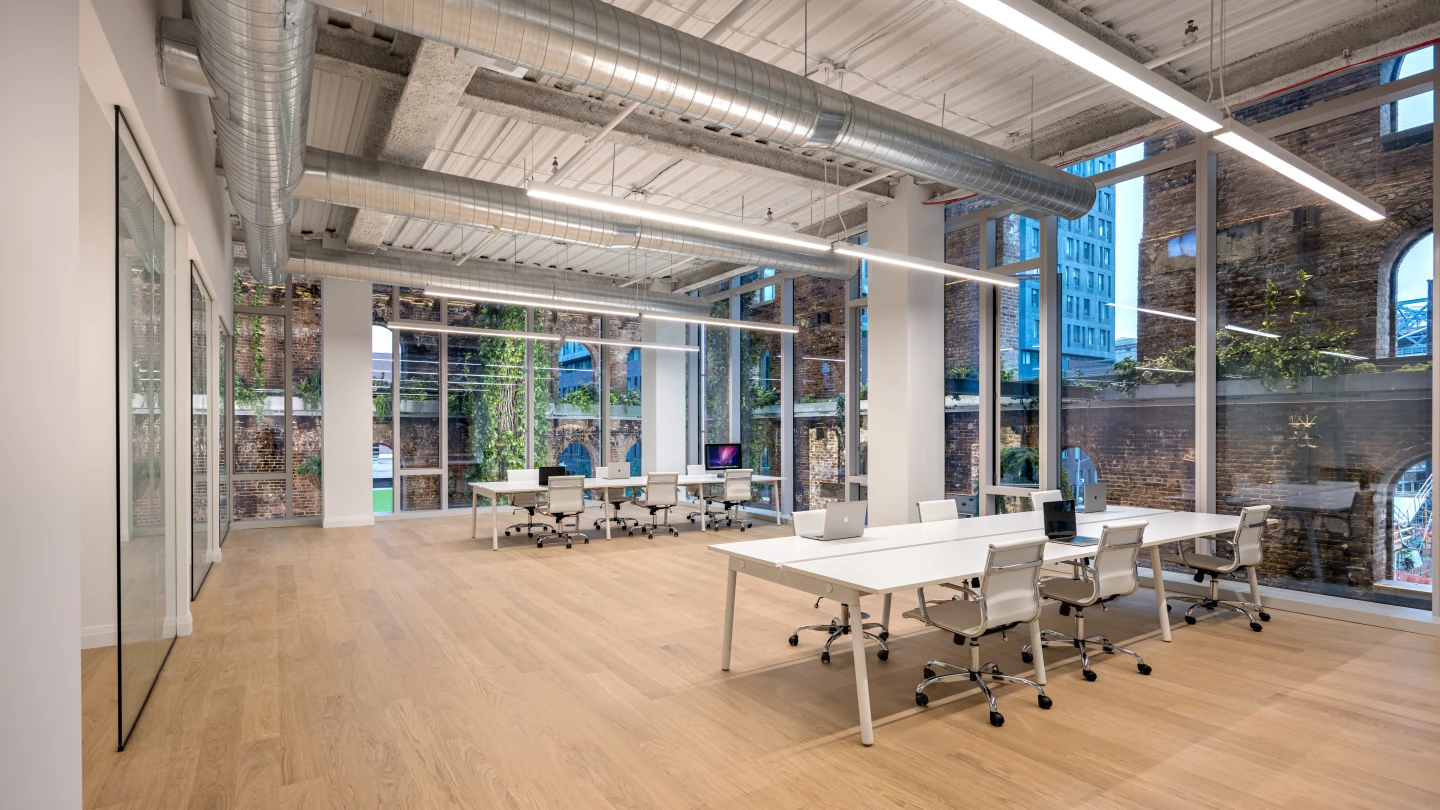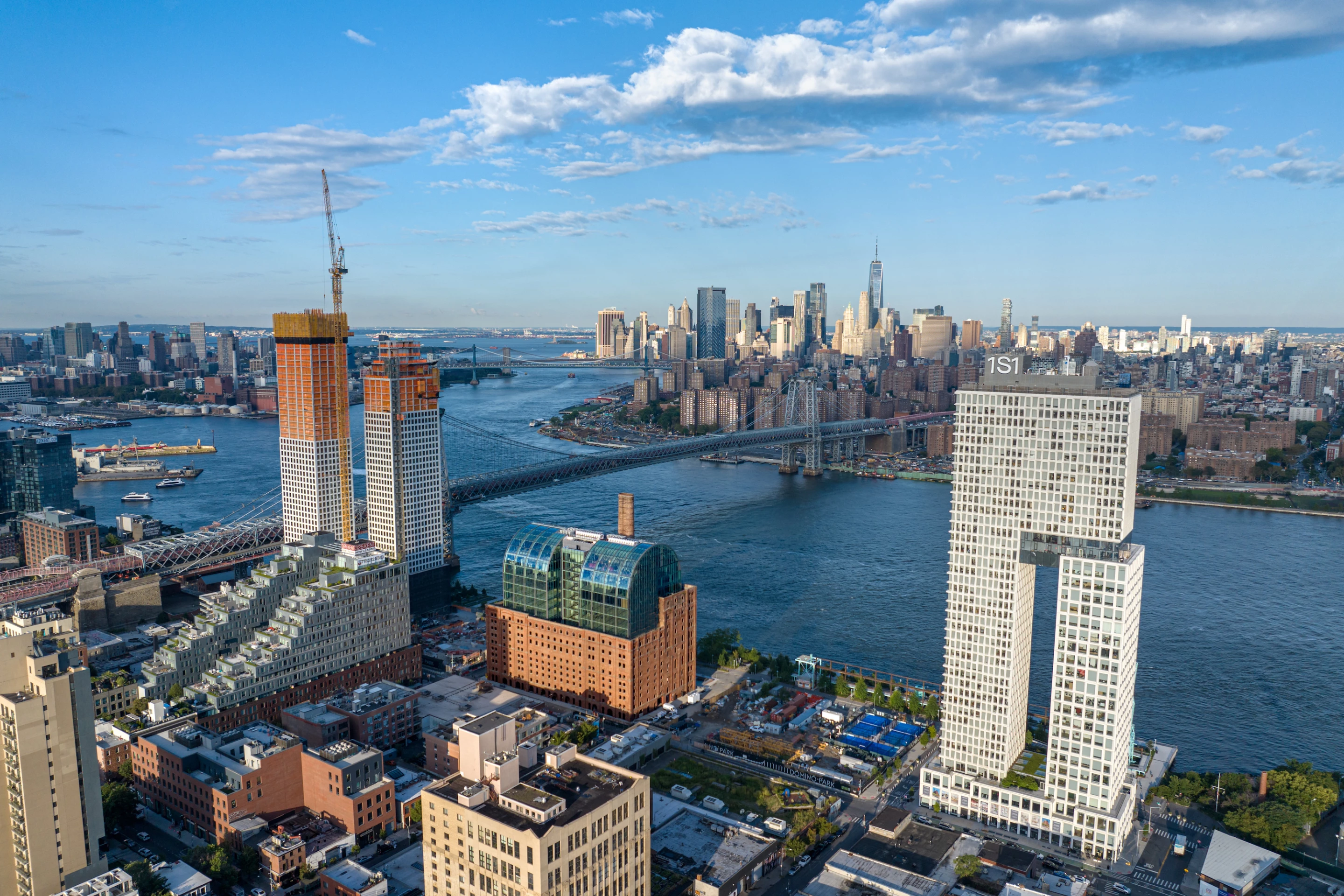Practice for Architecture and Urbanism (PAU) recently completed an ambitious renovation of Brooklyn's 19th century Domino Sugar Refinery. The firm retained the main brick shell of the historic building and inserted an all-new modern and energy efficient glass office building inside.
Bringing to mind the somewhat similar Battersea Power Station in London, the Domino Sugar Refinery was originally designed by Theodore Havemeyer to replace an earlier wooden building that was destroyed in a fire. It was finished in 1884, though its chimney was added later, and was in operation for an impressive 120 years, producing over a million pounds (roughly 453,000 kg) of sugar per day at its peak, before finally closing in 2004.
PAU had to overcome some serious challenges while transforming the former industrial building into a modern office, not least of which was a series of misaligned floors and window sills. In the end it was decided demolish some ancillary buildings and gut the the interior entirely to install a glass office within the existing brick facade.
There's a 12-ft (3.6-m) gap between the new and the old structures. This helps realize a standardized floorplan in the office, as well as creating a light and airy interior. Additionally, between the two structures, PAU has added significant greenery, including American sweet gum and native oak trees, and planters.

The new office measures 460,000 sq ft (roughly 42,000 sq m), and, alongside the main working areas, includes a large triple-height atrium lobby, amenities like a fitness club, indoor pool, and restaurants and retail space. Its uppermost vaulted penthouse roof section, meanwhile, offers superb views of Manhattan and serves as a combined events space, private club and communal workspace.
"The transformation of The Refinery entailed three major design moves – inserting a contemporary building in the sleeve of the historic structure similar the machinery it once housed; creating a glass barrel vault form that pays homage to the American Round Arch style of the original; and opening the ground floor to the park and the surrounding Williamsburg neighborhood," explained Vishaan Chakrabarti, Founder and Creative Director of PAU.
"This approach has created an iconic landmark for the 21st century, offering users natural light, luscious greenery, waterfront views, and a contemporary dialogue with history that most new commercial projects lack. Although conceived before the pandemic, The Refinery represents a future of work that offers a unique rootedness in place and community that is invaluable going forward."

In addition to its reuse of the old structure, the Refinery at Domino boosts its green cred with a water recycling system, meaning that all of the wastewater generated by the building is treated and reused onsite. It operates fully from electricity and PAU says it expects it to reach net zero emissions.
The project is part of a larger redevelopment effort on the Brooklyn waterfront and is surrounded by a large park by James Corner Field Operations, with some residential buildings nearby.
Source: PAU














